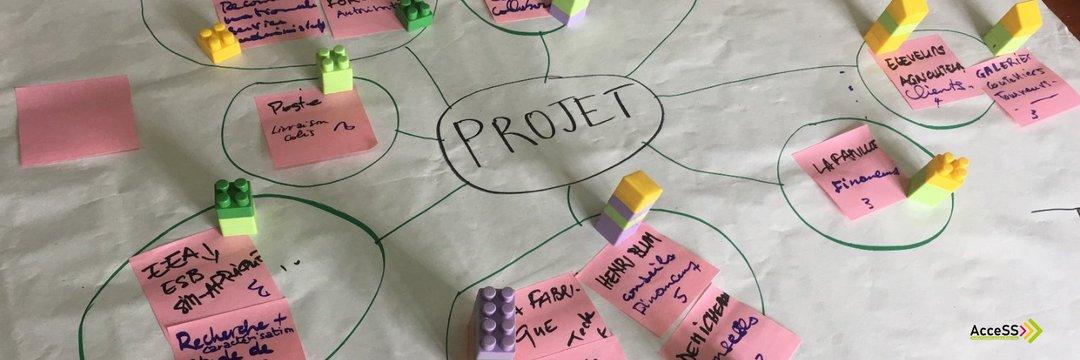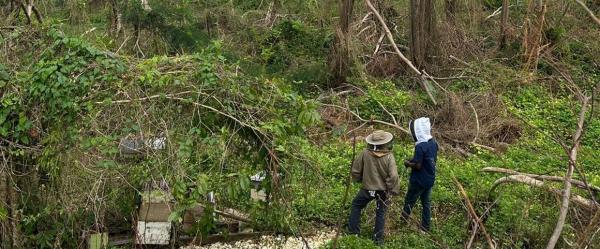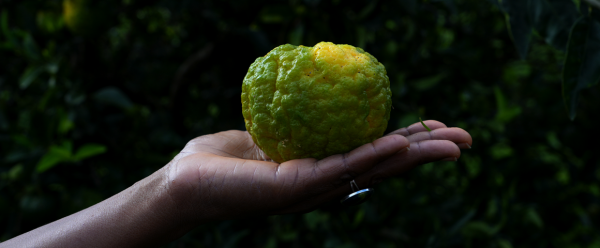Science at work 14 January 2026
- Home
- CIRAD news
- News
- CIRAD is working for high-impact research and innovation
Cross-cutting activities for high-impact research and innovation communities

DR
Climate change, biodiversity loss, huge pressure on resources, etc. There is consensus on the challenges facing agricultural and food systems and the objectives to be achieved*. However, the pathways to transforming agrifood systems are diverse: sustainable intensification, climate-smart agriculture, agroecology or nature-based solutions. Nevertheless, the stakeholders all agree on the need to support innovation with a view to designing and implementing large-scale solutions.
The DeSIRA initiative (Development Smart Innovation through Research in Agriculture), financed since 2018 by the European Commission, builds on research and innovation in partnership and the strengthening of agricultural innovation systems. Its aim is to accelerate change in agricultural and food systems, considering that the solutions required are all highly context-specific.
Since 2020, 82 projects have been launched and are currently underway in Africa, Latin America and Asia.
In order to operationalize the principles of the initiative and to build capacities for high-impact innovation in the DeSIRA projects, two cross-cutting meta-projects call on CIRAD’s expertise: the DeSIRA-LIFT facility, financed by the European Commission and implemented by CIRAD and its Agrinatura partners (ISA, WUR/CDI, COLEAD, SLU, NRI), and DISSEM-INN, financed by the Agence Française de Développement and implemented by CIRAD.
Capacity-building services for the management of innovation processes
DeSIRA-LIFT is a service facility that supports the three pillars of the DeSIRA initiative: research and innovation (R&I) projects in agricultural and food systems (pillar 1), projects to strengthen research infrastructures conducive to innovation (pillar 2), and the production of knowledge and evidence to inform public policy design (pillar 3).
CIRAD works in collaboration with the School of Agriculture at the University of Lisbon to coordinate the design and deployment of capacity-building services for the 70 projects under pillar 1 of DeSIRA implemented in around 50 countries.
These services are aimed at building five managerial capacities considered to be essential for high-impact R&I projects:
- the capacity to manage open and responsible innovation processes;
- the capacity to adapt and to respond to innovation needs in a given context;
- the capacity to influence the project environment and to strengthen the national agricultural innovation system;
- the capacity to implement monitoring-evaluation-learning activities to combine learning and accountability in real time;
- and the capacity to collaborate, which is a catalyst of the four other capacities.
A community of practice to progress together
The DeSIRA-LIFT services are based on interactive, experimental and reflexive learning methods. These include, for example, training-coaching sessions, personalized mentoring and the coordination of a community of practice (CoP DeSIRA), informed by cross-cutting studies of the successes and challenges encountered by the projects. The CoP DeSIRA brings together the DeSIRA projects, researchers specializing in innovation processes from the Agrinatura network and the international community, instructors and practitioners (managers, consultants, development officers and scientists).
The community of practice thus generates learning between the different innovation actors who want to progress together, pooling scientific knowledge and practical knowledge from the field, in order to identify good management practices for high-impact R&I projects.
Webinars complement the deployment of these services. They are the opportunity to address cross-cutting managerial challenges, such as the adaptation of R&I strategies to uncertain contexts and conflict situations, or the efficiency of different partnership schemes between research and other innovation actors**.
DeSIRA-LIFT also supports exchange events bringing together project clusters by geographical area. From 12 to 16 June 2023, the “DeSIRA days” will be held in Ouagadougou under the aegis of the Delegation of the European Union to Burkina Faso and the Centre National de la Recherche Scientifique et Technologique (CNRST), with the support of CIRAD.
Co-construction, the core of the DISSEM-INN project
The DISSEM-INN project aims to ensure cross-cutting capitalization on the achievements of a subset of nine projects under the DeSIRA initiative, implemented in the Sahel region. These projects share joint issues specific to this region: very high population growth, a situation of extreme poverty, high climate risks and an increase in conflicts. They address these challenges through the prism of sustainable agriculture and food security.
DISSEM-INN has two objectives: first, establishing a cross-cutting analysis of the innovation processes underway within these nine projects, through co-construction with all of the projects, and second, fostering a change of scale in innovation processes.
Co-construction is central to DISSEM-INN. The project advances with the involvement of all stakeholders. It would be impossible to work in any other way.
Rolling out research and innovation processes on a larger scale
To achieve these objectives, the DISSEM-INN experts design and organize spaces for science-policy dialogue associating a broad spectrum of stakeholders. The trust relationships built with the partners from the different projects concerned are a key to success.
These spaces for dialogue thus provide the opportunity to share the methods of each project, fostering the emergence of innovations as well as their dissemination and uptake. These innovations are technical, organizational and sociocultural.
In particular, a regional workshop has generated some first results, including a cross-cutting map of the strategies planned or implemented by the projects on these dimensions.
A policy brief is also available, describing the challenges encountered by the latter with regard to their intervention frameworks and proposing possible solutions.
A second, larger workshop is planned by the DISSEM-INN project in June 2023 in Senegal. It falls within the framework of the national exchange workshops that will focus on the contribution of the nine projects to the national agricultural innovation systems (AIS). These workshops will need to identify avenues for advocacy on the deployment of larger-scale innovation processes.
In each country, stakeholder synergies and impact synergies are therefore essential to reach the full potential of the DeSIRA initiative. Each at their own level, the DeSIRA-LIFT and DISSEM-INN meta-projects will thus create environments for learning and exchange of knowledge and practices for all of the stakeholders in the DeSIRA initiative.
* These challenges are transcribed through the 17 Sustainable Development Goals (SDGs) set by the United Nations, to be achieved by 2030.
** The resulting findings and recommendations are published regularly on the CoP DeSIRA website.



























